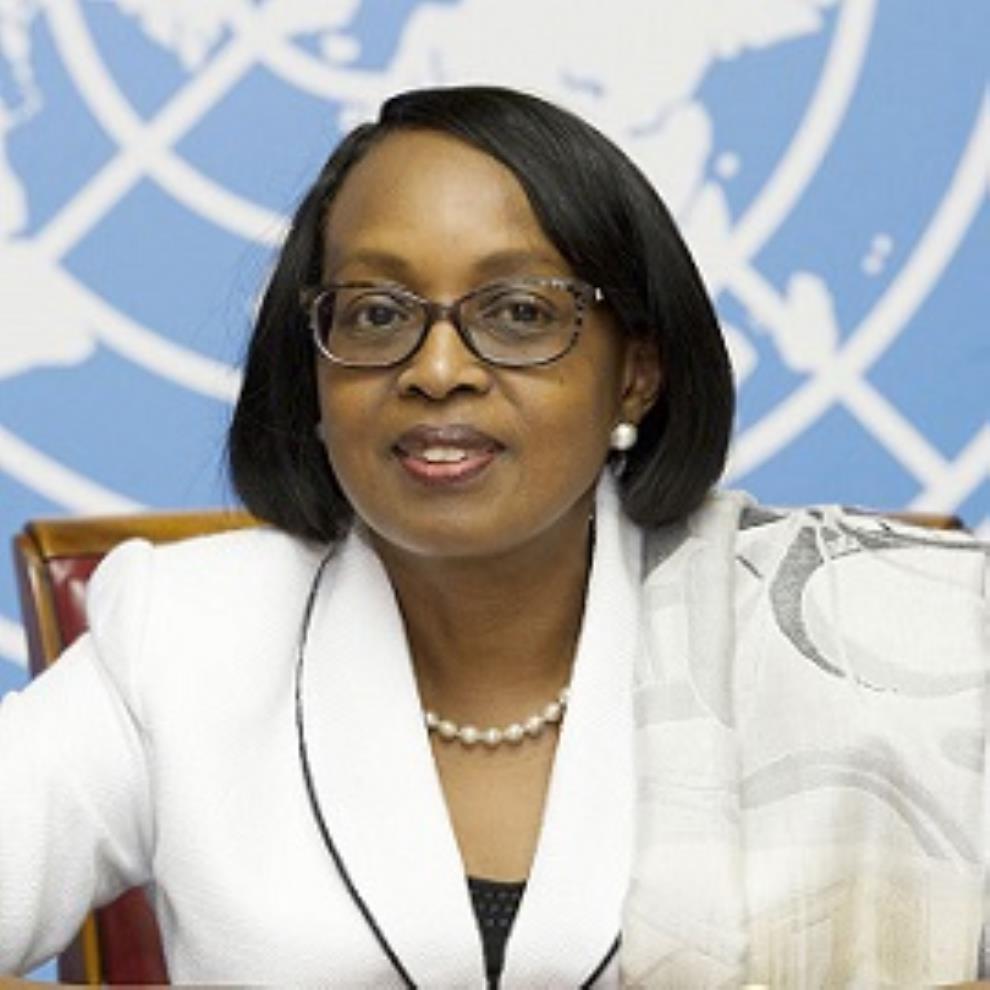The World Health Organization (WHO) Regional Director for Africa, Dr Matshidiso Moeti hinted that, global estimate shows that medication errors contribute to over three (3) million deaths every year, a situation which has been exacerbated by overwhelmed health systems during the COVID-19 pandemic.
Saying, about one in every four cases of preventable medication harm is clinically severe, or life-threatening. While there is limited data for the African continent, it is generally acknowledged that there is a high magnitude of unsafe medication practices.
Moeti gave this hint in her message to commemorate the World Patient Safety Day 2022 with the theme:”The theme for this year, “Medication Safety: Medication Without Harm”, specifically draws attention to the need to improve systems to support safe medication, and address unsafe practices. It focuses on three primary areas, namely: high-risk situations; transitions of care; and polypharmacy, which is the use of multiple medicines at once. Poly pharmacies are particularly common amongst older people with chronic health diseases” .
World Patient Safety Day is marked annually on 17 September, with the aim of raising awareness of the importance of people-centred care and preventing harm to patients.
She said ,consequently, patients’ rights to medication without prejudice can be compromised through inappropriate prescribing, transcribing, dispensing, administration and monitoring practices.
According to her: “Medication errors occur most commonly due to weaknesses in medication systems, and are aggravated by shortages of well-trained health staff, and poor working and environmental conditions for delivery of quality health care.
“Among low- and middle-income countries, the African Region has the highest prevalence of substandard and counterfeit medicines (18.7%).
Administration of surplus medication at home, the purchase of medication from pharmacies on the advice of friends and relatives rather than trained professionals, and the use of old prescriptions to buy medication to treat a current ailment, are all common practices that should be avoided.
“One study done in 2021 shows that as many as one in every three respondents admitted to self-medicating to prevent COVID-19. This is unacceptably high because such unguided practices often lead to dangerous consequences as a result of drug interactions, or incorrect administration, dosage or choice of treatment. Consequences include delays in treating diseases, dependence and abuse, disability, and even death. ,
Weak medication systems and/or human factors are the major contributory factors to unsafe practices, with many countries lacking the capacity to detect, evaluate and prevent medicine safety issues. Other contributory factors include fatigue, inadequate knowledge and training, staff shortages, workplace distractions, and high workload and limited resources.
Illiteracy, language difficulties, as well as socio-cultural and religious beliefs, also play a role.
“Based on current estimates, US$ 42 billion of total health expenditure worldwide could be averted if medication errors are addressed. Medication Without Harm aims to reduce severe avoidable medication-related harm by 50% globally in the next five years, through focused activities and interventions targeting three areas: patients and the public; health care professionals; and medicines, systems and medication practices”, she added.
The WHO Regional Director for Africa said , they are working with Member States to implement the WHO Global Patient Safety Action Plan 2021–2030. A regional patient safety strategy and road map are currently being developed to guide its implementation.
Some notable highlights include support to establish and strengthen national medicine regulatory authorities (NRAs), by building regulatory capacity and promoting regulatory harmonization and cooperation. Strengthened regulatory systems serve to eliminate barriers which impede access to safe, effective and quality assured medical products.
According to her: “WHO developed tools to assist Member States in benchmarking NRAs to identify strengths, and implement plans to address weaknesses. Ghana, Nigeria and Tanzania have already attained Maturity Level 3, indicating their regulatory systems are functioning well, and integrating the requisite elements to guarantee stable performance. This reduces their vulnerability to substandard and falsified medical products.
“To date, 39 Member States have developed essential medicines lists linked to standard treatment guidelines, while 25 have developed national medicine formularies that guide selection of medicines for procurement, good prescribing and dispensing practices.
“Efforts to enhance the role of health technologies in medication decision-making, including initiatives to reduce antimicrobial resistance, have led to eight countries being assisted to implement antimicrobial stewardship interventions at national and health care facility level.
“WHO is also supporting overall improvements in Infection Prevention and Control (IPC) measures, including injection safety, in all Member States.
The global campaign’s call to action is “KNOW. CHECK. ASK”. It aims to encourage and empower patients and their caregivers, as well as health care professionals (nurses, physicians, pharmacists), to take a more active role in ensuring safer medication practices, and medication-use processes.
“As WHO in the African Region advances efforts towards Universal Health Coverage and the achievement of the Sustainable Development Goals (SDGs), patient safety will be prioritized through the following interventions: RAISE awareness of the high burden of medication-related harm due to medication errors and unsafe practices, and ADVOCATE for urgent action to improve medication safety; ENGAGE key stakeholders and partners in efforts to prevent medication errors and reduce medication-related harm; EMPOWER patients and families to be actively involved in the safe use of medication; SCALE UP implementation of the WHO Global Patient Safety Challenge: Medication Without Harm; and PROMOTE operational research to guide decision-making and adoption, with better behaviour-related medication safety”, she further stated.
She urged all stakeholders to fully commit to implementing the WHO Global Patient Safety Challenge: Medication Without Harm, and to accelerate the actions necessary to ensure safe medication practices. The need for accurate data and information to guide future decision-making and optimization of therapeutics for good treatment outcomes in the Region cannot be overemphasized.

